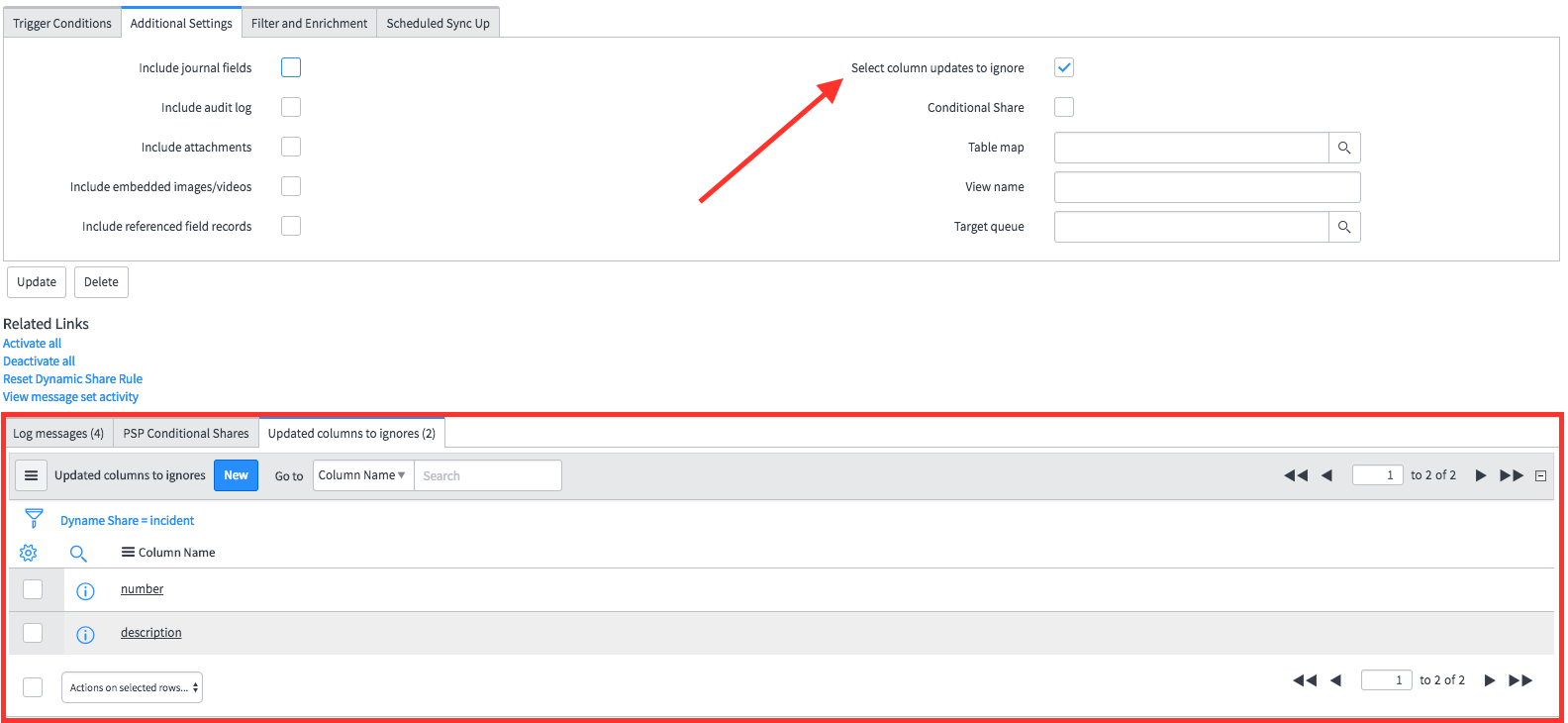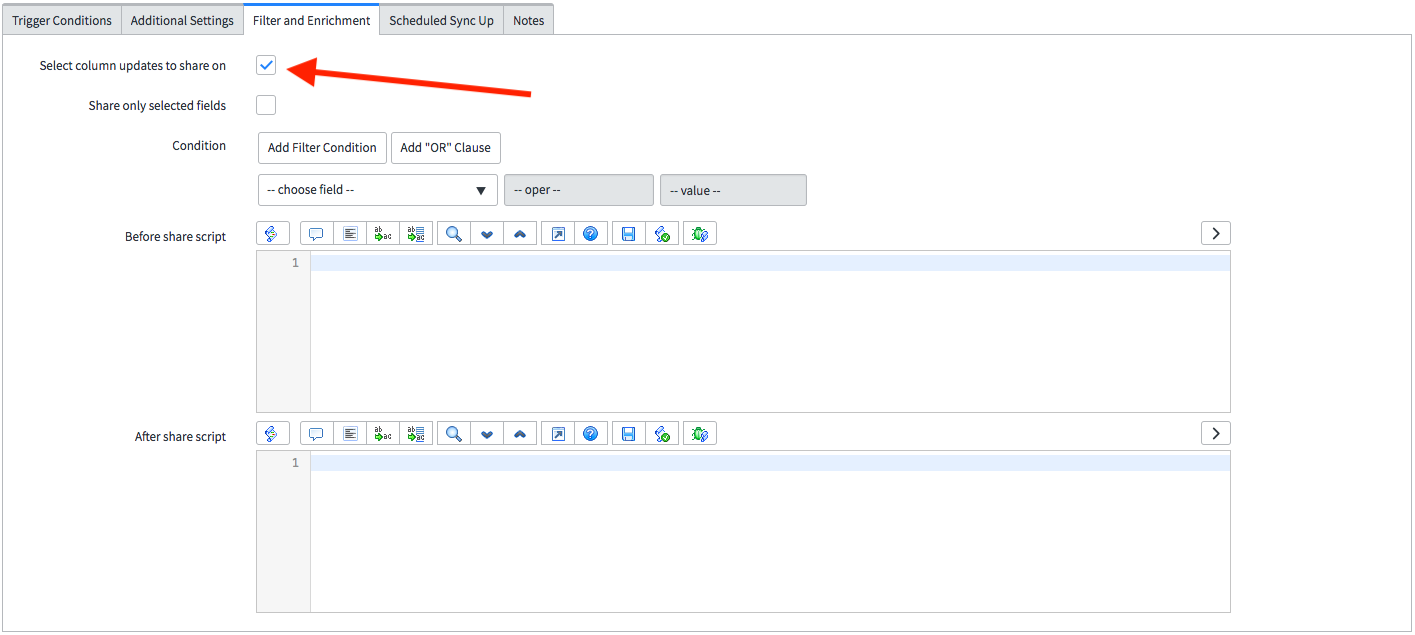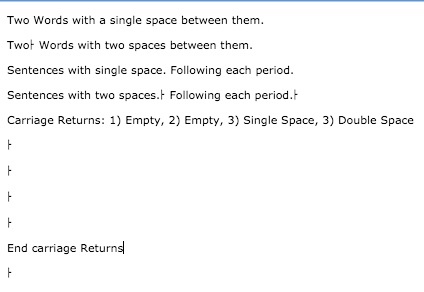We've compiled some handy tips and tricks for you to make the most of your Perspectium application. Please explore!
For more basic tips, visit the Best Practices page.
The role perspectium_readonly can be assigned to any users accessing your ServiceNow instance. Assigning the perspectium_readonly role will restrict Perspectium functionality so that users cannot delete, modify, or create new records for the following:
Shared/Subscribed Queues
Bulk/Scheduled Bulk/Dynamic Shares
Table/Transform Maps
Perspectium Properties
To assign the perspectium_readonly role to a user in your ServiceNow instance, follow these steps:
Log into your ServiceNow instance as a System Administrator.
Using the left-side navigator, go to User Administration > Users.
Click the name of the user whose role you want to change.
Under the Roles tab at the bottom of the form, click Edit.
In the left-side search window under Collection, type perspectium_readonly.
Select the perspectium_readonly role and move it to the Roles list using the right arrow button (>).
Click Save.
Records that exceed either ServiceNow or Perspectium's record size limit cannot be bulk or dynamic shared out.
To check which records or fields are too large to send, log into your sharing ServiceNow instance and navigate to Perspectium > Logs.
For any records that are too large to bulk/dynamic share out, you will see an error message indicating the record size limit that was exceeded, as well as any fields that were notably large.
If you have a table, such as incident, that has an activity log showing duplicated sys_journal_field entries, try de-checking the boxes for Run business rules and Refresh history set on the incident table subscribe configuration.
Since Refresh history set is already checked on the sys_journal_field table itself, running refresh history set on the incident table will cause it to refresh twice. Due to the way ServiceNow handles timing and refreshing history set, this can cause two entries to occur.
As well, running business rules can create duplicate entries, since a business rule may cause the system to believe two different events are occurring.
However, turning off Run business rules will disable the table events' business rule (for example the incident events business rule for the incident table) that is run to create events in the event log.
If you want these events to occur, you can execute them in the Before subscribe script of the table's subscribe configuration using the ServiceNow function that actually fires the event (gs.eventQueue()) and the gr_before and repl_gr GlideRecord objects available in the Before subscribe script.
For example, to cause the incident.assigned.to.group event to be fired when the assignment group is changed, you would add the following to the Before subscribe script:
if (gr_before.assignment_group != repl_gr.assignment_group) {
gs.eventQueue("incident.assigned.to.group", current, current.assignment_group, previous.assignment_group.getDisplayValue());
}
Note that for fields that are not stored in the table itself and are stored in the sys_journal_field table, such as the comments field in the incident table, you would want to have the script in the Before subscribe script of the sys_journal_field configuration as follows:
if(repl_gr.element == "comments" ){
var igr = new GlideRecord("incident");
if(igr.get(repl_gr.element_id)){
gs.eventQueue("incident.commented", igr, gs.getUserID(), gs.getUserName());
}
}
In this case, the incoming sys_journal_field record is checked to verify that it is a comments record and that is for the incident table by checking if the sys_id in the record exists in the incident table. If it does, then the incident.commented event is fired using the incident record itself (igr) to ensure the event is properly created.
For replicating between ServiceNow instances, changes to the class name are supported so that subscribing instances will also update the record's class name. This is most useful with configuration items (cmdb_ci) where discovery runs and changes the class name of configuration items (because they were created with the wrong class name) and you want these changes to replicate properly.
For example, if you have a network gear (cmdb_ci_netgear) item:

If you change the class to a different class, such as IP Switch (cmdb_ci_ip_switch), Perspectium will send out a cmdb_ci_ip_switch record and the subscribing instance will notice the change in class and update it accordingly.
NOTE:
The subscribing instance must be subscribing to all tables that the class name can be changed to (in the above example, if the cmdb_ci_ip_switch table were only subscribed to the cmdb_ci_netgear table, Perspectium would “skip” the cmdb_ci_ip_switch update.
It is recommended you subscribe to global or the base table (such as cmdb_ci) in order for class name changes to replicate properly.
There are occasions when a dynamic share on a table is not getting triggered because the table modification is performed by a script or Import Set Transform Map that is stopping subsequent business rules from running. In the latter case, the Run business rules checkbox may have been unselected. In the other case, the setWorkflow(false) API may have been called.
In either case, you can trigger Perspectium directly by inserting the following code snippet in your script at the right position.
NOTE: You must first create a dynamic share configuration for the table.
var psp = new PerspectiumReplicator(); psp.shareRecord(GR, "table_name", "operation");
Where:
- GR = the current GlideRecord
- “table_name” = the table name of the GlideRecord
- “operation” = the mode you want to trigger replication - the options are “insert”, “update”, or “delete”
On occasion, you may need to access a field's value using ServiceNow's Dot Walking feature.
The following example leverages this feature by sending the display value of a sys_domain's name value, subscribing it to update another instance of Servicenow.
Place the following line in the Before Share script of your bulk shares or dynamic shares:
current.sys_domain = current.sys_domain.name;
This will modify the outgoing record's payload to have the domain's name in the sys_domain column.
If you are subscribing this into another ServiceNow instance, you must handle it either with a Transform Map, or, you could set up a similar Before Subscribe script to mirror this by grabbing the Domain corresponding to this name, like so:
var domainVal = repl_gr.sys_domain;
if(domainVal != null){
var dGR = new GlideRecord('sys_user_group');
dGR.addQuery('name', domainVal);
dGR.queryNoDomain();
if(dGR.next()){
current.sys_domain = dgr.sys_id;
}
}
Date/Time fields in ServiceNow are stored in the database in UTC timezone. They are adjusted for the individual user’s local timezone as defined by their profile at runtime in the UI. This allows anyone viewing the data to see date/time values in their local timezone to avoid confusion. When we replicate that data, we just replicate it as is in UTC, and write it to the target, without doing any kind of timezone offset, since there isn’t one in the context of a machine integration. Typically reporting solutions can account for this and adjust based on your end user’s needs.
This is fairly standard across most enterprise applications.
If you want to explicitly convert all data to a specific timezone for replication you can do so using a BeforeShare script in bulk shares and dynamic shares and specify the fields that you want to convert.
We do not recommend this, as it can cause issues if the reporting or viewing technology being used adjusts it again in their UI. You also need to consider the impact of Daylight Savings. Something converted and replicated during Standard Time could be off by an hour compared to something converted during Daylight Savings time.
If you wish to do this anyways, here is a simple example script which converts sys_updated_on and opened_at to US/Eastern timezone during replication.
// Date/Time variables you want to update
var timesToUpdate = ["opened_at", "sys_updated_on"];
var curTimeZone = "America/New_York";
// Get the specified timezone
var tz = Packages.java.util.TimeZone.getTimeZone(curTimeZone);
// Edit specified variables with the offset
var time;
var timeZoneOffset;
for(var t in timesToUpdate){
time = new GlideDateTime(current.getValue(timesToUpdate[t]));
time.setTZ(tz);
timeZoneOffset = time.getTZOffset();
time.setNumericValue(time.getNumericValue() + timeZoneOffset);
current.setValue(timesToUpdate[t], time);
}
There are three ways you can control a dynamic share to only fire on certain field updates:
Ignoring or canceling a share in the before share script
In the Before Share script of a dynamic or bulk share configuration, you can set the global variable ignore to the boolean value true to prevent the current record from being shared.
For example, the following script ignores the dynamic sharing of an incident record when the priority field value is 1:
if (current.priority == 1) {
ignore = true;
}
As another example, the following script will ignore sharing the record with a number value TKT0010001 during bulk sharing of all ticket records:
if (current.number == "TKT0010001") {
ignore = true;
}
Ignoring a share if only one field has changed
For cases where you have a table's records updated frequently but data doesn't actually change (such as a table that gets updated every single day via another integration or ServiceNow Discovery), you may not want the table's dynamic share (with interactive only not selected) to run and share out any records.
As an example, consider the field that gets updated every day is u_last_discovered_date. The rest of the fields don't usually change, and you don't want to share these records out again since the subscribing side (such as a database) doesn't really need the latest u_last_discovered_date.
In these cases, you can run the following script to ignore sharing the record:
function listChangedFields(obj){
var flds = [];
var aud = new GlideRecord("sys_audit");
aud.addQuery("documentkey", obj.sys_id);
aud.addQuery("record_checkpoint", obj.sys_mod_count);
aud.query();
while (aud.next()){
flds.push(aud.getValue("fieldname"));
}
return flds;
}
var changedFields = listChangedFields(current);
var ignoreFields = ["priority", "urgency"]; // If any changed field falls outside that list, the update will be sent
ignore = true;
var util = new ArrayUtil();
for (var i=0; i<changedFields.length; i++){
if (!util.contains(ignoreFields, changedFields[i])) ignore = false;
}
Ignoring a share with multiple field changes
In the Additional Settings tab of the table, check the Select column updates to ignore box to ignore sharing records with multiple field changes. This will reveal the related list, allowing you to select the desired fields that you want to be ignored when updated.

Considering the picture above as an example, the record would be ignored if the number and description fields are the ONLY fields that have been updated; if any other fields have also been updated, the record will not be ignored.
Sharing on specific field changes
In the Filter and Enrichment tab of the table, check the Select column updates to share on box to share a record only when one of any number of chosen fields are updated. This will reveal the related list, allowing you to select the desired fields.

Note that you are only able to select one option out of Select column updates to share on and Select column updates to ignore. Checking either box will cause the other one to disappear.
Next, select the fields that you want to trigger a share. Considering the picture below as an example, the record would ONLY be shared if the assigned_to or description fields have been updated; if these fields have not been updated, the record will be ignored.

For tables that have HTML fields, such as the kb_knowledge table and its text field, use the encrypted_multibyte encryption mode to ensure that the HTML fields are sent out properly. Otherwise, HTLM fields may be sent with extraneous characters for spaces, as seen below:

By default, ServiceNow instances and the DataSync Agent support the various encryption modes out of the box, so there is no additional configuration required on the subscribing side.
If it seems like you are not sending data out of your instance as fast as you would like, ask these questions
Is the count of my Outbound Messages [psp_out_message] consistently very high (+250k Ready Message)?
Is my property for maximum bytes per post too low (should be in the 5 MB to 10 MB range)?
Is my property for max record per post too low (should be around 2000-4000 records)?
How often is my Perspectium MultiOutput Processing job running (default to 30 seconds)?
These are the typical things we look at for optimizations first prior to adding in Multiple MultiOutput jobs. If these are all set as expected and the throughput is still not enough, learn more about multiple jobs here.
If you notice slow subscribe performance in your instance, check System Diagnostics > Slow Queries to see if any slow queries are running on subscribe. See if these slow queries are a result of Run business rules selected on the subscribe, and turn those off if not needed.
If you see a field that a query is always running on, see if that field is indexed or not, and if not, add an index to that field to help improve performance.
A scrollbar is visibly shown for ui pages with multiple modules on them. This feature works for the Google Chrome browser and Windows machine users. If you are using Mac OS, you must configure your system preferences to visibly display the scrollbar automatically.
- Create a bulk share for the archive record, i.e. Table name is ar_incident. Then, select Share the table records only in the Sharing setup dropdown.
- In the bulk share, navigate to Runtime Setting > Runtime Behavior. Then, enable Share as archive.
Navigate to Scripting > Script Options. In the Before share script field, add the following line of code to force the delete action:
psp_action = "delete";
- Fill the rest of the required fields, i.e. Target Queue, etc.
- Save and Execute the bulk share and check to confirm the outbound message is sent correctly on the original archive table, i.e. incident.delete.
The Perspectium outbound and inbound message queues in ServiceNow in particular requires indexes to be added in order for DataSync to function optimally.
The following indexes are already included in the Core update set:
| Table | Index Name | Type | Fields |
|---|---|---|---|
| PSP Out Message tables (psp_out_message, u_psp_attachment_out_message, u_psp_audit_out_message, u_psp_observer_out_message) | psp_out_query | composite, non-unique | State (state) Target Queue (u_target_queue) Created (sys_created_on) |
| PSP Out Message tables (psp_out_message, u_psp_attachment_out_message, u_psp_audit_out_message, u_psp_observer_out_message) | psp_out_query3 | single, non-unique | Sequence (u_sequence) |
| PSP Out Message tables (psp_out_message, u_psp_attachment_out_message, u_psp_audit_out_message, u_psp_observer_out_message) | psp_out_query4 | composite, non-unique | Created (sys_created_on) Sequence (u_sequence) |
| PSP In Message (psp_in_message) | psp_in_query | single, non-unique | Created (sys_created_on), name, key, u_sequence |
| PSP In Message (psp_in_message) | psp_in_query2 | single, non-unique | State (state) |
| PSP Log Message (u_psp_log_message) | psp_log_query | single, non-unique | Created (sys_created_on) |
| PSP Log Message (u_psp_log_message) | psp_log_query2 | composite, non-unique | Created (sys_created_on) Type (u_type) |
| PSP Properties (u_psp_properties) | u_psp_properties_u_name | single, non-unique | Name (u_name) |
| PSP Replicate Conf (u_psp_replicate_conf) | u_psp_replicate_conf | single, non-unique | active, sync_direction, table_name |
If these indexes are not included, follow Create a table index or contact Perspectium Support.